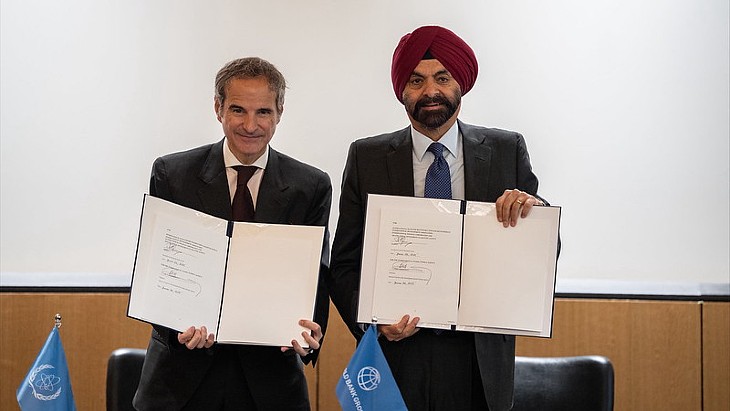Russian Energy Week discusses role of nuclear in SDGs
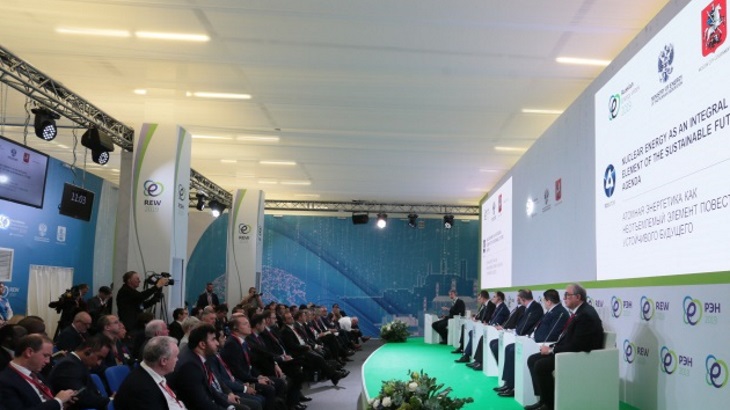
They discussed the key effects and values of nuclear power technologies, their impact on the quality of life of people, the main barriers to their development, and their role in achieving the United Nations' Sustainable Development Goals (SGDs). Rosatom published a summary of the discussion on 2 October.
The session was moderated by Thomas Blees, president of the Science Council for Global Initiatives, who referred to International Energy Agency data that shows nuclear power is the second largest low-carbon source of electricity in the world, with nuclear power plants accounting for 10% of global electricity production.
Alexey Likhachov, Rosatom director general, said that energy systems must become more flexible and client-centric to meet consumer needs.
"The global nuclear industry today is becoming a factory of new technologies. These are IT-technology, supercomputers and new materials. These are nuclear medicine and new types of power generation, including wind energy. We not only see the modern agenda and participate in it, we form this agenda. And new technologies are what makes people's lives better, more comfortable and safer," Likhachov said.
Viktor Karankevich, minister of energy in Belarus, said unit 1 of the country's first nuclear power plant, under construction in the Grodno Region, is "already in a high stage of readiness", and installation of equipment continues on the second unit.
"The commissioning of nuclear power plants will make it possible to meet about one-third of [our] energy demand and will have a positive impact in terms of reducing emissions and reducing greenhouse gas effects," the minister said.
Péter Szijjártó, Hungarian minister of foreign affairs and trade, said his country’s project to expand the Paks nuclear power plant is “one of the best economic decisions [it’s made] in recent years”.
"We consider the construction of nuclear power plants in Hungary not just as a construction project, but as a general concept for boosting the country's economy to a higher level - for example, highly qualified specialists, about 1000 new jobs, infrastructure development," he said.
A global approach to tackling climate change is not feasible without nuclear energy, the panellists said, since nuclear power minimises the emission of CO2 into the atmosphere. In addition, nuclear power plants are national-scale infrastructure projects with significant developmental effects for both the industrial sector and the local population, they said.
The session also included Mohamed Al Hammadi, CEO of Emirates Nuclear Energy Corporation, Amged El Wakil, director of Egyptian Nuclear Plants Authority, Bernard Fontana, CEO of Framatome, and Mikhail Chudakov, International Atomic Energy Agency (IAEA) deputy director general and head of its Department of Nuclear Energy.
According to the IAEA, nuclear technologies - used for energy, human health, food production, water management and environmental protection - contribute directly to nine of the 17 SDGs set out in the United Nations 2030 Agenda for Sustainable Development.
Russian Energy Week is an annual event for discussion of the main developments and challenges faced by the gas, oil, coal, petrochemicals and electricity sectors.
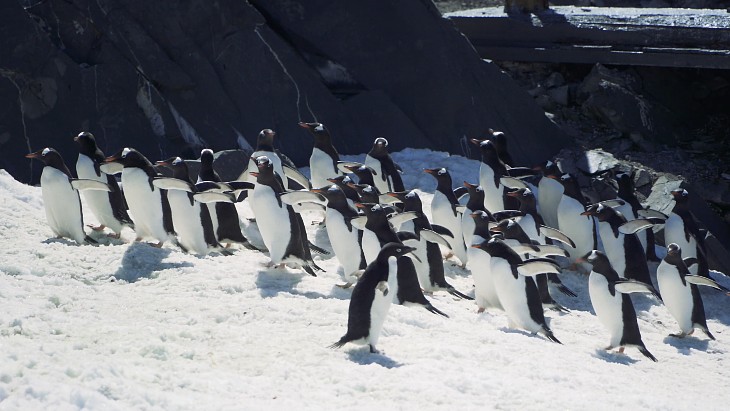
_99697.jpg)
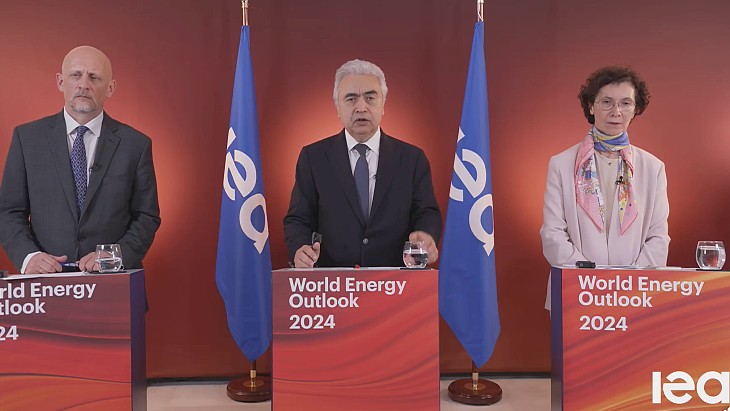
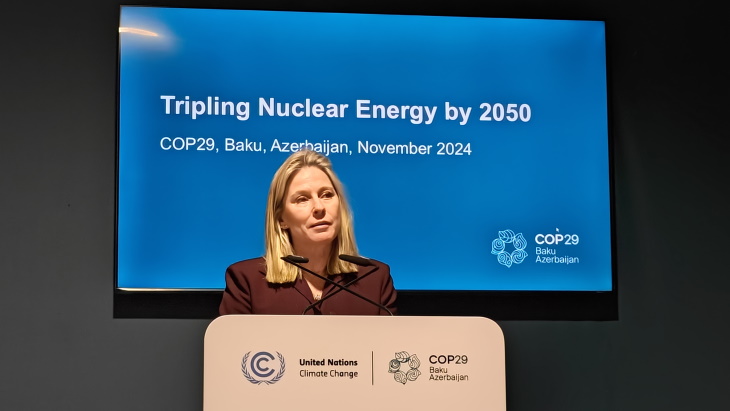





..._58412.jpg)
